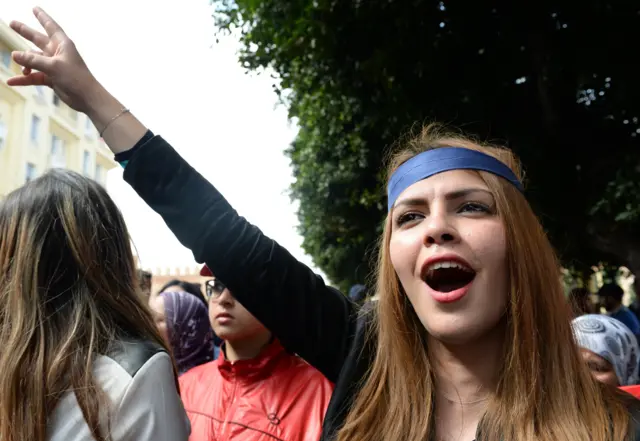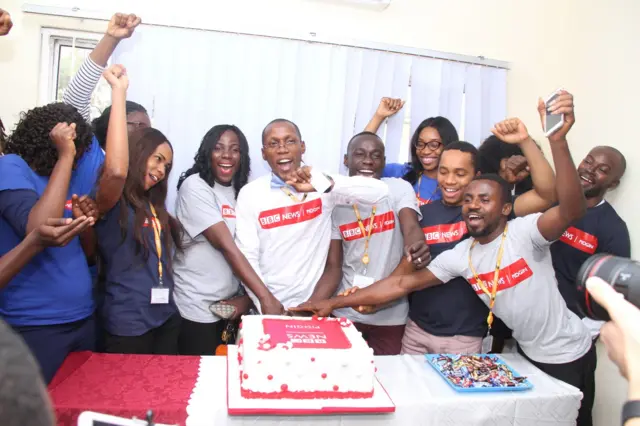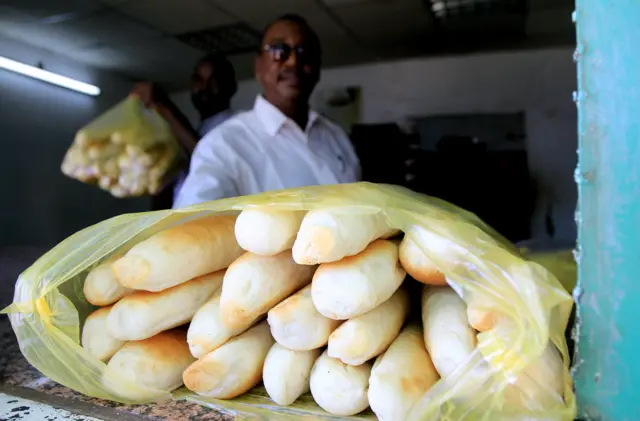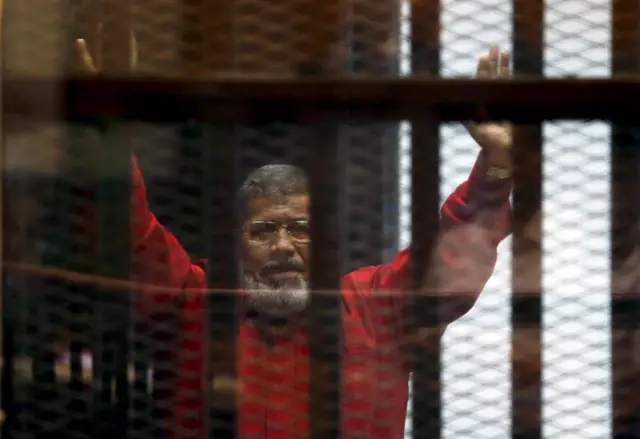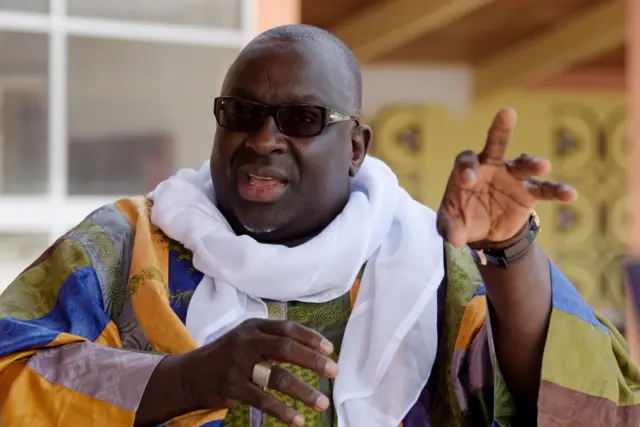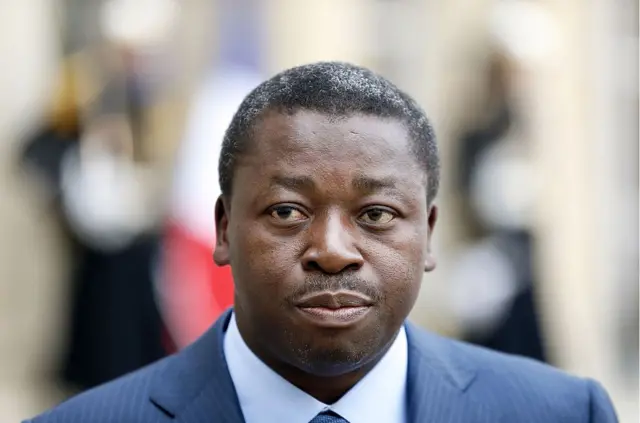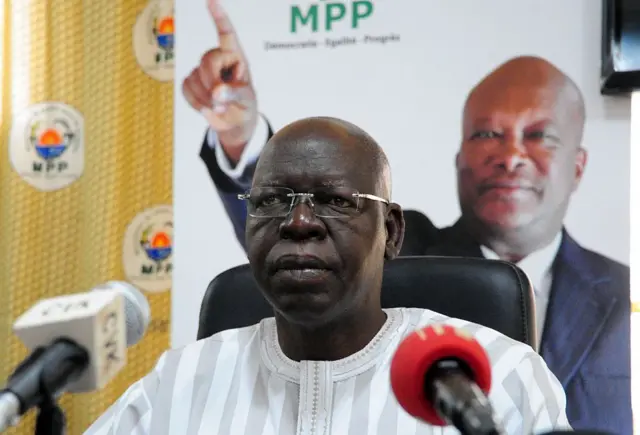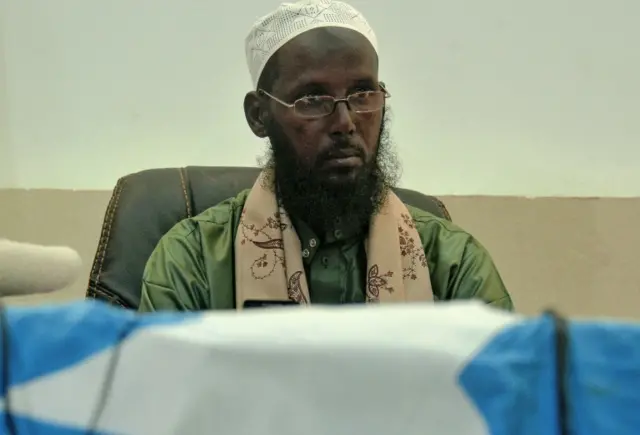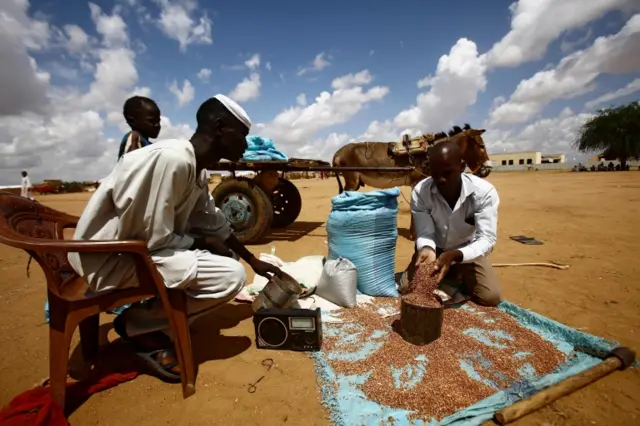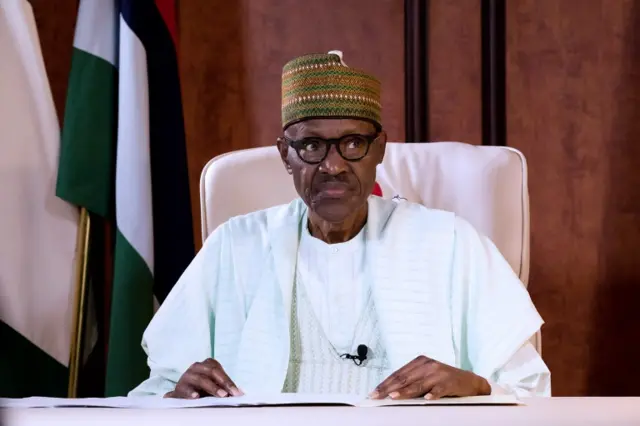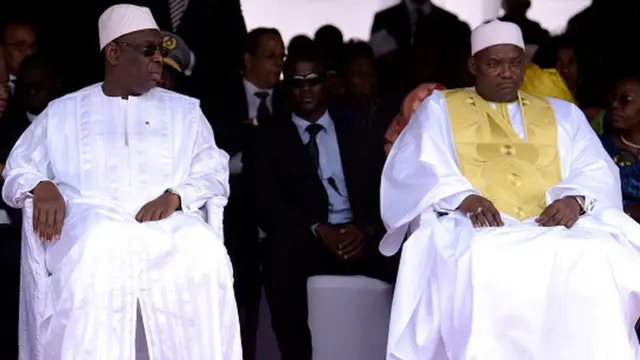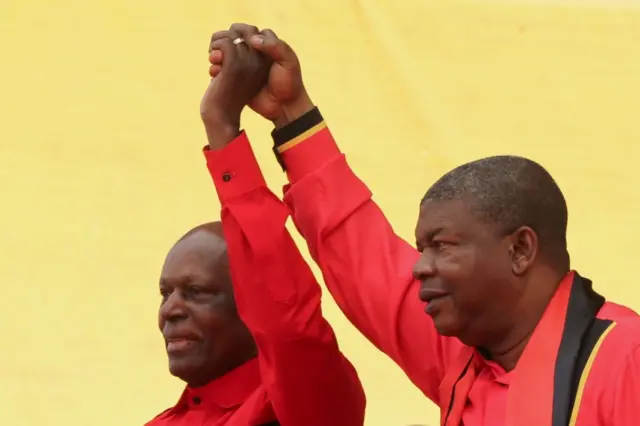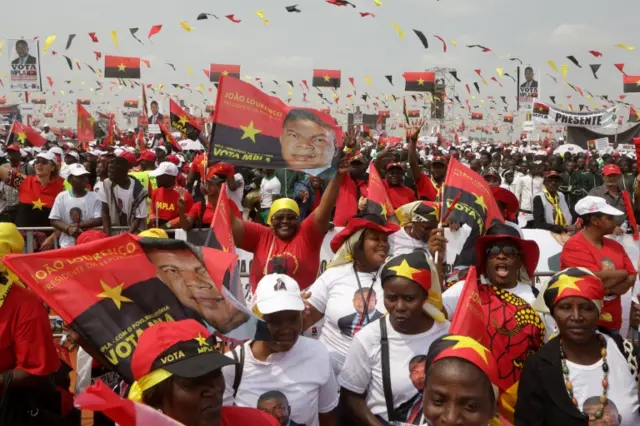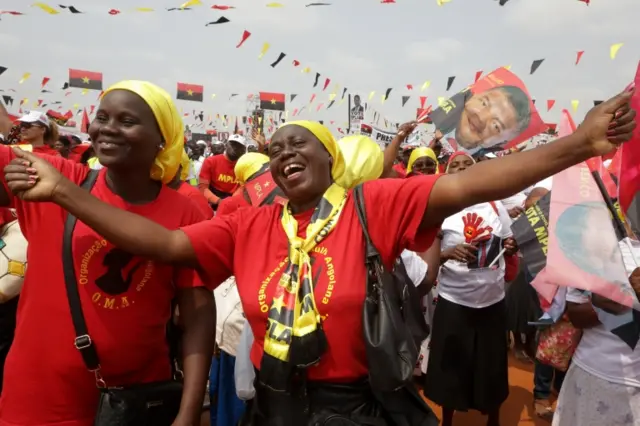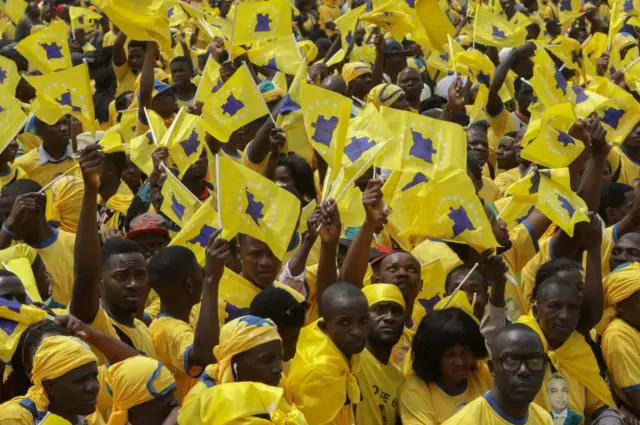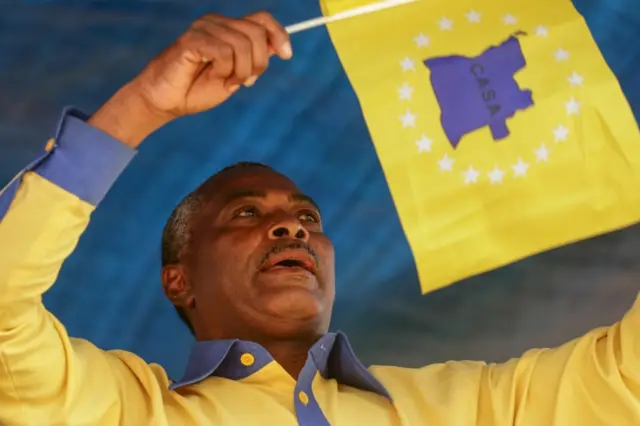Scroll down for Monday's storiespublished at 18:12 BST 21 August 2017
We'll be back tomorrow
That's all from the BBC Africa Live page today. Keep up to date with what's happening on the continent by listening to the Africa Today podcast or checking the BBC News website.
A reminder of today's wise words:
Quote MessageWhen the nose is being beaten the eyes shed tears."
An Ijaw proverb sent by Edema Fuludu in Warri, Nigeria
And we leave you with this photo of Desnoces, a fashion design student in Grand-Bassam in Ivory Coast. He is the only boy in his sewing class. He says sometimes people are surprised to see him there, but he does not mind. He wants to become a great fashion designer.
Allow Instagram content?
This article contains content provided by Instagram. We ask for your permission before anything is loaded, as they may be using cookies and other technologies. You may want to read Meta’s Instagram cookie policy, external and privacy policy, external before accepting. To view this content choose ‘accept and continue’.

